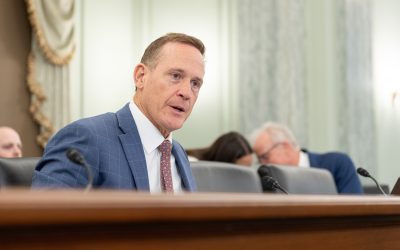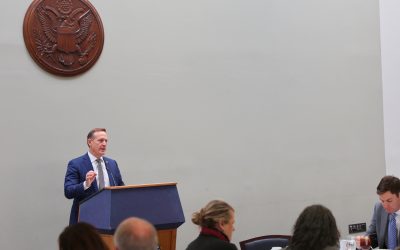Washington, D.C. — Senator Ted Budd (R-NC) has joined a coalition letter to the Department of Defense (DOD) urging the department to increase funding requests to upgrade barracks on military bases across the country.
The letter was also signed by: Senators Jon Ossoff (D-GA), John Cornyn (R-TX), Reverend Raphael Warnock (D-GA), Marco Rubio (R-FL), and Ted Cruz (R-TX).
The full text of the letter is below:
We write to express our frustration regarding atrocious and unacceptable conditions in barracks facilities across the armed forces.
As I am sure you are aware, the Government Accountability Office (GAO) recently published a report entitled “Military Barracks: Poor Living Conditions Undermine Quality of Life and Readiness.” The report found that “living conditions in some military barracks may pose potentially serious risks to the physical and mental health of service members, as well as their safety.” The reports further noted that in one facility: “Former residents of this barracks told us they experienced months of hot water interruptions and routinely dealt with clogged showers, broken door locks, broken elevators, and apparent mold growth.”
The GAO report specifically identified the lack of reliable information about barracks conditions, and the level of funding committed to barracks facilities sustainment, restoration, and modernization (FSRM), as key areas of concern. A few key examples from the report:
- “DOD has not tracked complete or reliable information on how much Operations and Maintenance (O&M) or Military Construction (MILCON) it has used to improve barracks conditions or how much would be needed to meet minimum condition standards.”
- “When we asked the military services to provide information on the amount of FSRM funding obligated for barracks, none was able to provide us complete data.”
These findings call into question the reliability of armed service budget requests for facilities sustainment, restoration, and modernization, which already consistently fall below assessed requirements. Therefore, we ask for your commitment to the following:
- The fiscal year 2025 budget request for each of the armed services will reflect 100% of assessed barracks sustainment, restoration, and modernization requirements.
- The fiscal year 2025 budget request for each of the armed services will specify the amount of facilities sustainment, restoration, and modernization funding allocated to barracks facilities.
- These barracks sustainment, restoration, and modernization requirements will be assessed using a consistent methodology across each service.
- The fiscal year 2025 budget request will include a comprehensive and installation-specific identification of military construction (MILCON) requirements, regardless of whether these requirements are slated for funding in fiscal year 2025.
- Department of Defense personnel will brief our staffs on Department efforts to address barracks maintenance, repair, modernization, and construction requirements.
At a time when the Department of Defense is rightly working to address serious recruitment and retention issues, reports of poor living conditions serve only to dissuade qualified Americans from considering military service. Moreover, those who have already answered the call to serve deserve a standard of living commensurate with the most modern and capable fighting force in the world. Anything less represents a failure to uphold the U.S. government’s commitments and endangers military readiness.
###



